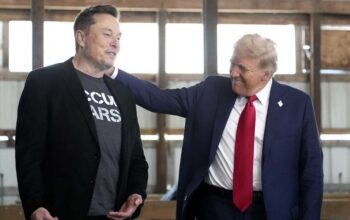
Charlie Dorf
Senior Editor
The shooting of Trayvon Martin was a tragedy that Americans will not soon forget. The circumstances surrounding the incident have brought attention and examination to issues such as racial profiling and Stand Your Ground laws not just in Florida, but across the country.
I want to state all the things I am not: I am not a gun owner. I am not black. I am not a police officer. I am not a lawyer or a judge. I am not a politician or a community leader.
I am, however, a teenager.
The reason I stated all those things is because I don’t have the experience or perspective to judge Martin’s death from any of those viewpoints. The media, for the most part, focuses on the fact that Trayvon was black. But he was also 17 years old, barely a year younger than me. And this gives me a perspective that is not represented well in the media.
George Zimmerman, the man who shot Martin, saw a teenager walking alone at night. Despite not being a police officer and being told by the police not to pursue, he still felt it was his obligation to make sure he wasn’t doing anything illegal, because, well, a teenager walking around at night must be up to something, right? This assumption directly resulted in Martin’s death. The following question asked is who confronted whom after Martin realized he was being followed? For many, this unknown would determine whether or not Zimmerman acted in self-defense or if he instigated the conflict?
Does it matter?
This response will raise eyebrows, I’m sure. Let’s say that Martin confronted Zimmerman. In general, people do not like to be followed by strangers. I would not appreciate being trailed by an unknown man, who then proceeded to question me about my reasons for walking around at 7:20 at night. As such, Martin was probably scared as well as justifiably angry at being followed then questioned by a stranger, not a police officer, but an unknown civilian. This, in my opinion, is provocation.
George Zimmerman felt he had the right to follow Martin because he was a teenager, and if he turned out to be doing nothing wrong, who is going to listen to him if he complains? Across the country, it is almost universally accepted as a fact of life that police and even civilians feeling ‘civic’ will view teens with a suspicious eye, regardless of race or location. At the same time, teens are criticized for not having respect for legal authority. Allow me to say that I have immense respect for law enforcement officers who put their lives on the line to protect American citizens. However, when “driving while teen” becomes a de facto reason for traffic stops, it is no surprise that many teens reciprocate the lack of trust they see others exhibit towards them. Whether it’s race or age, no one likes to be a suspect simply because of what they look like or how old they are. I have little doubt that Trayvon Martin felt this frustration, and I doubt that George Zimmerman would have acted the same if Martin had been older and dressed in a button-down.
Teens are expected to take suspicion of criminal activity in silence. Trayvon Martin didn’t, and he was killed as a result. This isn’t a case of police brutality, because George Zimmerman isn’t a cop. This is a case where a teenager was falsely suspected of being a criminal, and was killed because he didn’t like being followed by a man whom he didn’t know and who had no business following him in the first place. Yes, teenagers should listen to their parents and obey the police, but trust is a two-way street, and both police and adults need to recognize the damage age profiling can cause. Trayvon Martin’s death shows us how costly those assumptions can be.




Being a teen does not make you any different from any other Zimmerman accusers. You say that Trayvon Martin was killed because of “profiling”? How do you make this assumption? Because Zimmerman, a half white man shot a teen who was black? Is that automatically profiling? You weren’t there and you don’t know why Zimmerman chose to shoot Trayvon Martin. Last time I checked, Zimmerman only shot Martin once Martin attacked him. That’s not profiling. That’s self-defense.